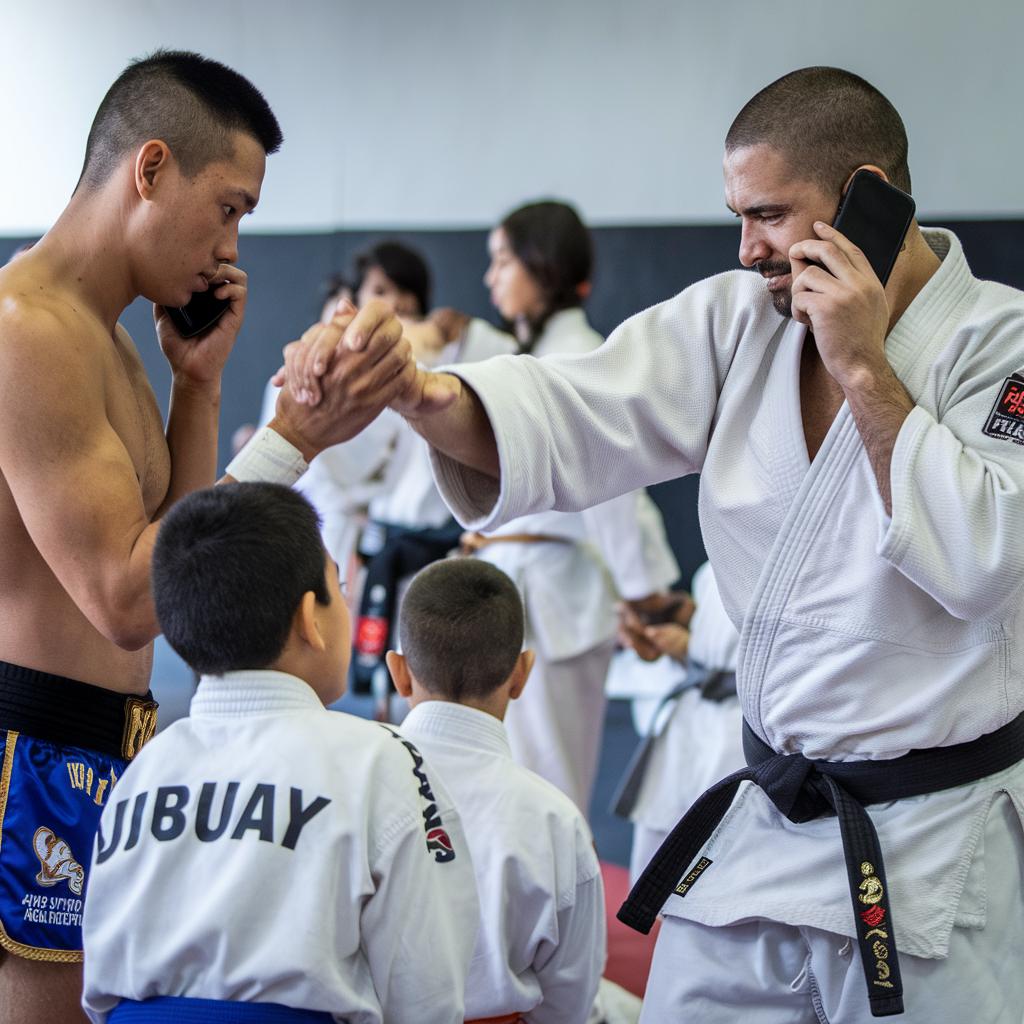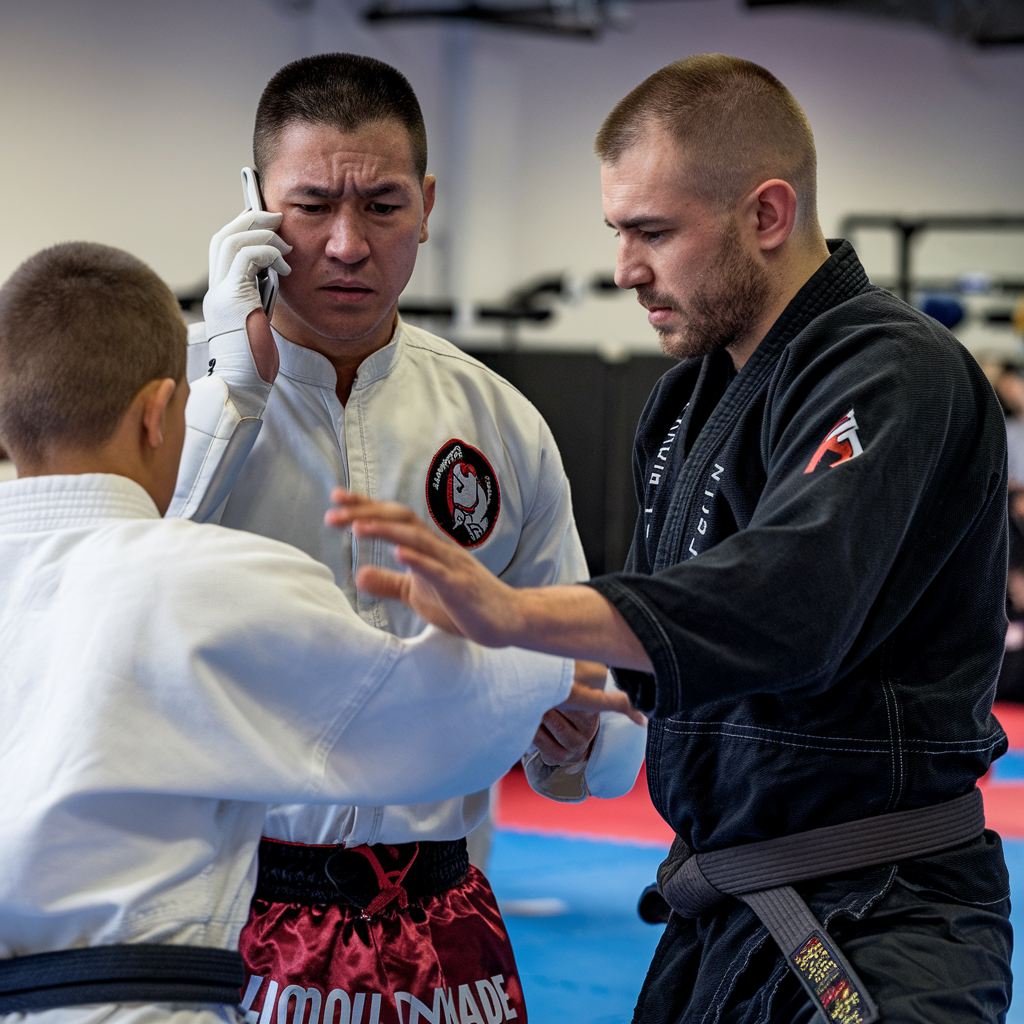
Life is unpredictable. Just when you think you have everything under control, it throws an unexpected challenge your way—whether it’s a career setback, a difficult relationship, or a personal struggle. What if there was a way to not only survive these challenges but also thrive through them? Enter Brazilian Jiu-Jitsu (BJJ)—a martial art that teaches far more than self-defense.
Jiu-Jitsu is often described as “human chess” because it involves strategy, adaptability, and problem-solving under pressure. However, the lessons learned on the mat extend far beyond the dojo. The physical and mental demands of BJJ mirror life’s ups and downs, preparing you to face real-world challenges with resilience, patience, and confidence.
In this article, we’ll explore how practicing Jiu-Jitsu equips you with the tools to navigate everyday challenges, adapt to adversity, and emerge stronger in the process.
1. Embracing Discomfort: Growth Happens Outside Your Comfort Zone
One of the first lessons you learn in Jiu-Jitsu is that discomfort is inevitable. Being pinned to the mat, struggling to escape, or feeling exhausted during a roll (sparring session) forces you to stay calm under pressure. In life, discomfort shows up in the form of tough conversations, unforeseen obstacles, or stepping into new roles.
A. Learning to Stay Calm in Difficult Situations
In BJJ, panic only worsens the situation. If you find yourself trapped in a bad position and lose your composure, you burn energy and make mistakes. The key is to stay calm, assess your situation, and work toward a solution—an invaluable skill in real life.
Example:
Imagine being overwhelmed with deadlines at work. Just like on the mat, panic leads to poor decisions and burnout. But by staying calm, breaking down the tasks, and tackling them one by one, you can regain control and find a way through the pressure.
Practical Application:
- When facing challenges, pause and take a breath before reacting.
- Focus on controlling what you can, instead of fixating on what’s out of your hands.
- Trust that discomfort is temporary and can lead to growth.
2. Adaptability: The Art of Going with the Flow
Jiu-Jitsu is dynamic. No matter how much you plan your moves, your opponent’s actions will force you to adapt on the fly. The ability to adjust your approach—whether in a match or in life—is a powerful tool for overcoming unforeseen challenges.
A. Resisting Less, Flowing More
In BJJ, resisting force with brute strength often leads to exhaustion. Instead, the art emphasizes using an opponent’s momentum against them—redirecting rather than resisting. In life, pushing back against change only increases stress. Embracing flexibility allows you to navigate unexpected turns more smoothly.
Example:
When a business plan falls through, rigidly clinging to your original idea wastes time and energy. Successful entrepreneurs pivot and adapt—just as a Jiu-Jitsu fighter changes strategy mid-roll when the initial plan doesn’t work.
Practical Application:
- Accept that change is a constant and adjust your mindset to embrace it.
- When plans fall apart, ask yourself, “How can I pivot and keep moving forward?”
- Practice flexibility by approaching problems from multiple angles.
3. Patience: Trusting the Process

In Jiu-Jitsu, progress is slow but steady. Beginners often feel overwhelmed because techniques are complex and improvement isn’t immediate. However, those who stick with it learn that consistency over time leads to mastery—a principle that applies to all areas of life.
A. The Power of Small, Consistent Efforts
Whether you’re learning an escape technique or tackling a long-term goal, success rarely happens overnight. BJJ teaches that even small gains matter and that trusting the process is the surest way to achieve long-term growth.
Example:
If you want to improve your health, fad diets and quick fixes are unlikely to work. Consistent, small changes—like exercising regularly and eating mindfully—yield lasting results, just as practicing core techniques in Jiu-Jitsu builds a strong foundation.
Practical Application:
- Break big goals into small, manageable steps.
- Focus on long-term progress rather than immediate results.
- Celebrate small wins—they compound over time.
4. Humility: Learning from Every Experience
Jiu-Jitsu is a humbling experience. No matter how strong or skilled you are, there is always someone who can challenge or defeat you. This constant exposure to failure fosters humility—a mindset that allows you to grow from setbacks instead of being defeated by them.
A. Embracing the Beginner’s Mindset
In BJJ, you never “arrive” at mastery—there’s always more to learn. This same mindset applies to life. Remaining open to new experiences and accepting that you don’t have all the answers is essential for personal and professional growth.
Example:
A leader who admits their mistakes and remains open to feedback gains the trust of their team. Similarly, a Jiu-Jitsu black belt still refines fundamental techniques because they know there’s always room for improvement.
Practical Application:
- Be willing to ask for help and learn from others.
- Accept mistakes as part of the learning process.
- Stay curious—never stop learning and improving.
5. Resilience: Getting Up After Every Fall
In Jiu-Jitsu, you will get tapped out (submitted) repeatedly. But every time you tap, you learn. Over time, you realize that failure isn’t a permanent defeat—it’s a stepping stone toward improvement. This mindset builds resilience—the ability to recover quickly from setbacks.
A. Developing a “Never Quit” Attitude
Life’s toughest moments test your ability to keep going despite adversity. Jiu-Jitsu conditions you to stay in the fight—mentally and physically—even when things get tough.
Example:
After a job loss, it’s easy to feel defeated. However, approaching the situation like a Jiu-Jitsu match—analyzing what went wrong and making adjustments—builds the resilience needed to bounce back stronger.
Practical Application:
- View setbacks as opportunities to learn and grow.
- Build mental toughness by embracing rather than avoiding challenges.
- Remind yourself that the ability to persevere is more important than never failing.
6. Confidence: Trusting Yourself Under Pressure
BJJ trains you to stay composed even when an opponent is stronger or more aggressive. With time and practice, you develop unshakable confidence—not just in your physical abilities, but in your capacity to handle difficult situations.
A. Confidence Through Preparedness
Confidence in life comes from preparation and experience. Jiu-Jitsu teaches that when you train consistently and face your fears, you grow stronger and more capable.
Example:
Someone who has trained for public speaking feels more confident addressing large audiences—just as a Jiu-Jitsu practitioner becomes calmer when facing tough opponents.
Practical Application:
- Build confidence by preparing thoroughly for challenges.
- Step outside your comfort zone regularly.
- Trust yourself—you are more capable than you realize.
Conclusion: Applying Jiu-Jitsu Wisdom to Everyday Life
The lessons learned on the mat in Jiu-Jitsu are mirrors of life’s challenges. Through embracing discomfort, adapting to change, and practicing resilience, you cultivate the mental and physical tools to face anything life throws your way.
By applying these principles off the mat, you’ll not only survive tough times—you’ll thrive, rolling with life’s challenges and emerging stronger, wiser, and more resilient than ever.
Whether you train in Jiu-Jitsu or simply adopt its philosophies, remember this: Life, like Jiu-Jitsu, is about staying flexible, remaining patient, and always getting back up—no matter how many times you fall.

